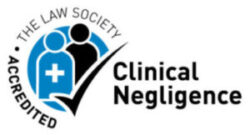In early October 2015 it became apparent that Royal Wolverhampton NHS Trust has been acting to cover up the actions of two doctors who administered an extra strong form of chemotherapy to patients who did not stand to benefit from it, over a period of several years from 2005 to 2009.
Worse still, the whistle-blower who exposed the misconduct (which is thought to have affected the lives of at least 55 patients) has been subjected to disciplinary measures aimed at silencing him. Clinical negligence solicitors at Blackwater Law are extremely concerned by this apparent medical negligence given the unnecessary exposure of patients to a range of potential side effects known to have a detrimental effect on patient quality of life.
Dr Margaret King and Dr Mark Churn – who still practice at the New Cross Hospital in Wolverhampton and Worcestershire Oncology Centre respectively – administered a highly potent drug combination named “Folfox” to patients suffering from colorectal cancer. The recommended course of treatment for this form of the disease is accepted within the medical community to be a month of chemotherapy combined with radiotherapy, before a break of 6-12 weeks, then surgery. King and Chum acted against recognised medical practice guidelines in administering Folfox for up to 20 weeks preceding the standard month of chemotherapy and radiotherapy, an act which some medical watchdogs have now deemed a “macabre experiment”, as opposed to mere misdiagnosis of cancer. Folfox is known to induce a range of potential harmful side effects through reducing the number of red blood cells a patient can retain in their body, such as lost fertility, acute nausea and a higher risk of fatal infections.
As if this were not already sufficient grounds for concern and possibly clinical negligence compensation claims, it’s now emerged a whistle-blower and fellow medical professional alerted authorities in 2009 – yet it took both the NHS Trust Development Authority and the Care Quality Commission (CQC) 18 months to contact the affected patients. What’s more, despite having his allegations investigated and validated by an audit carried out by the trust at New Cross Hospital in Wolverhampton, the whistle-blower was accused of bullying and harassment by Dr King and then subjected to a two-year investigation. During this time restrictions were placed on his ability to practice, and in October 2013 he was officially suspended, before choosing to leave and work abroad in January 2014. All this occurred despite the trust’s report – overseen by the development authority – finding 33 cases of “major concern” and 14 of “moderate concern” in relation to patient wellbeing at the hospital between 2007 and 2009. With allegations extending back to 2005, it now seems likely that many more could be entitled to medical negligence compensation, although 29 have subsequently died. Summing up the concerns raised, the medical report stated the following:
“There was and is no evidence to support this approach as standard of care. This strategy is not part of any practice guideline, network, national or international. There is no rationale or explanation as to why this strategy was undertaken.”
Reached for comment by the Daily Mail in relation to his mistreatment and the attempted cover-up at the hands of his employers, the whistle-blower issued the following statement on the 13th of October 2015:
“It is a fantasy that exists in Westminster that whistle-blowers are protected. Hospitals will do anything to protect their reputations. I was gagged, repeatedly threatened and ridiculed. The trust is still trying to create an illusion that nothing significant happened to these patients. The treatment they were given causes soreness of the mouth so severe you cannot eat, nerve damage that means you cannot do up buttons or use a knife and fork…”
Despite wishing to remain anonymous, the whistle-blower has subsequently been reported by Trust bosses (in a statement made public on its website) to the General Medical Council (GMC) on allegations of “serious misconduct”, in a bid to discredit his name and restrict his ability to practice. A number of former colleagues have pledged support when contacting the media, with one issuing the following statement:
“The whistle-blower was one of the most valued members of staff. There has been a witchhunt to silence him. Instead of tarnishing his name they should apologise to the patients…”
Numerous MPs have since condemned the Trust’s treatment of the whistle-blower, and the failure to act upon the risks relating to patient safety which he helped to highlight.
Jason Brady, clinical negligence solicitor at Blackwater Law, issued the following statement:
“Poor practice within the NHS does need to be brought to the attention of the public. If it is not the practice will continue without being questioned, potentially causing harm to patients and sometimes putting their lives at risk.”
Claiming compensation for clinical negligence
If you or a family member feel you may have been affected by the issues highlighted in this story, contact Blackwater law clinical negligence solicitors today on 0800 083 5500.
If you have negligently been subject to unnecessary treatment you could be entitled to medical negligence compensation. Call Blackwater Law today for free initial advice on making a claim for compensation. All accepted cases are operated on a no win, no fee basis.





